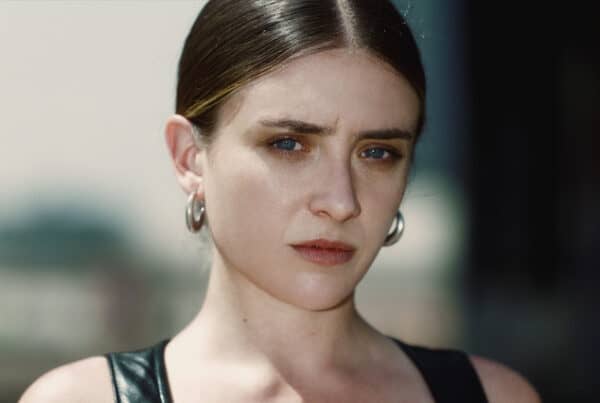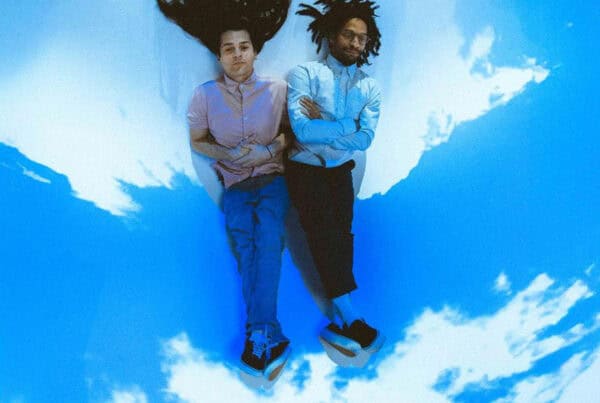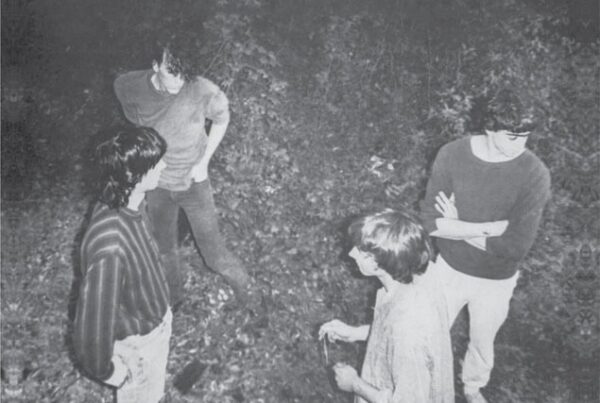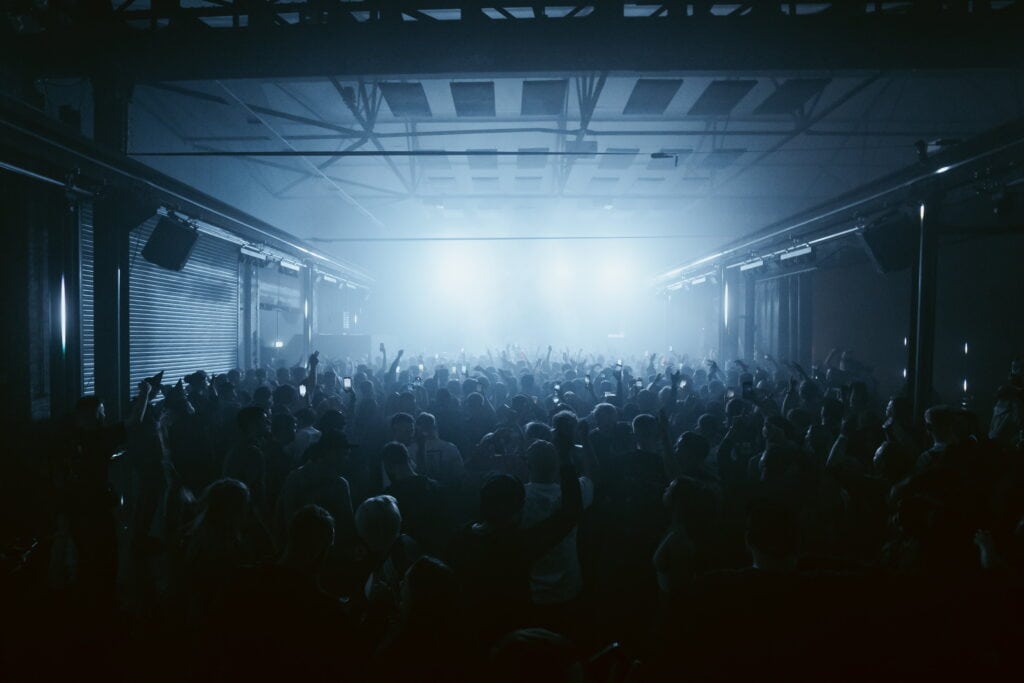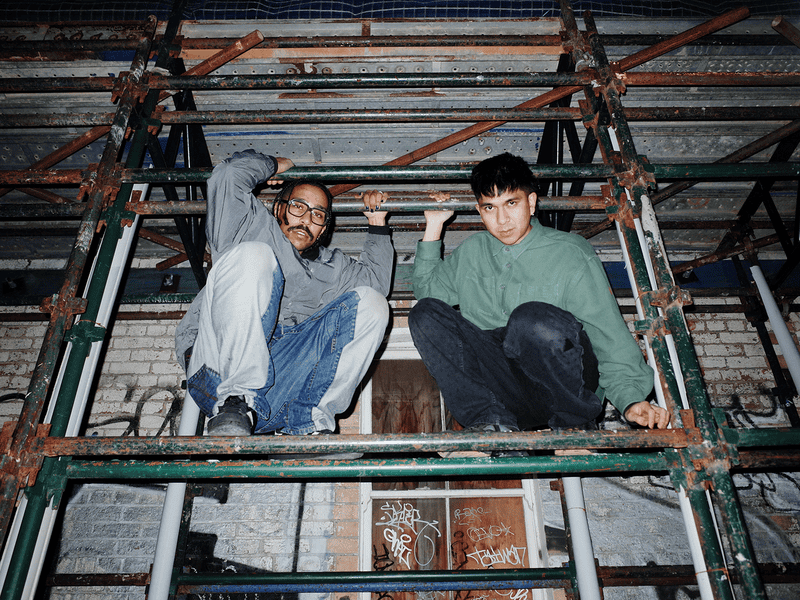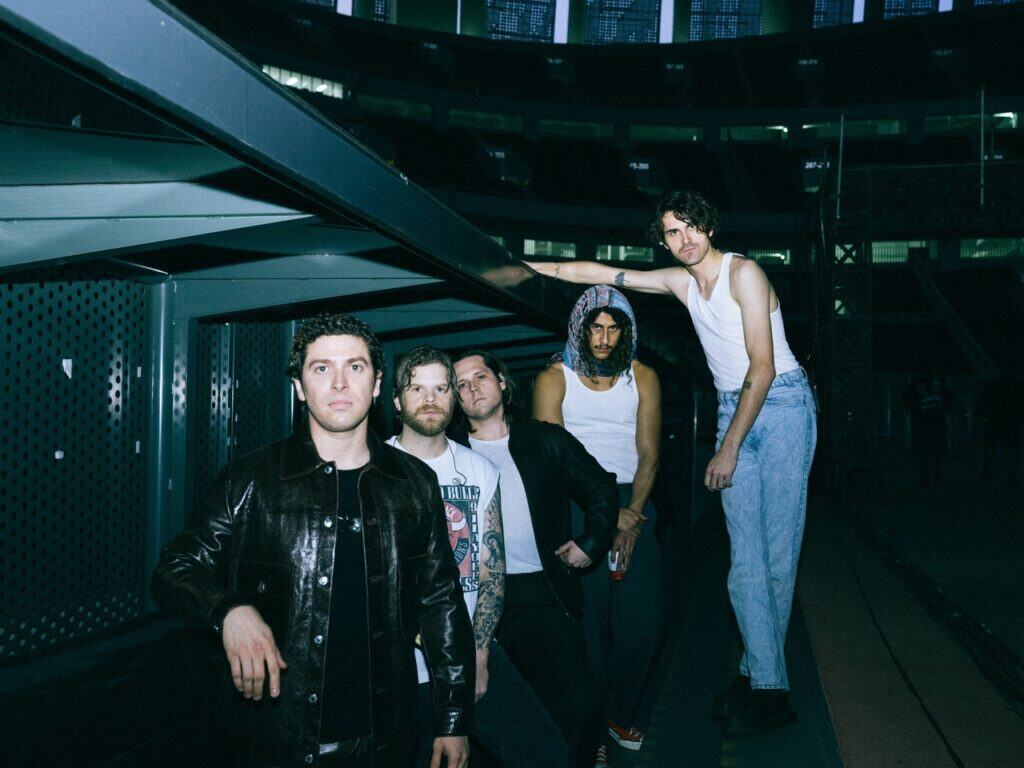AEW’s Malakai Black goes deep with Dom Smith from Soundsphere to uncover his favourite festivals including Download in the UK and Sonisphere in Europe, and talks us through a few of his favourite artists including Cruel Hand, Carpenter Brut, Cradle of Filth and…Cascada?
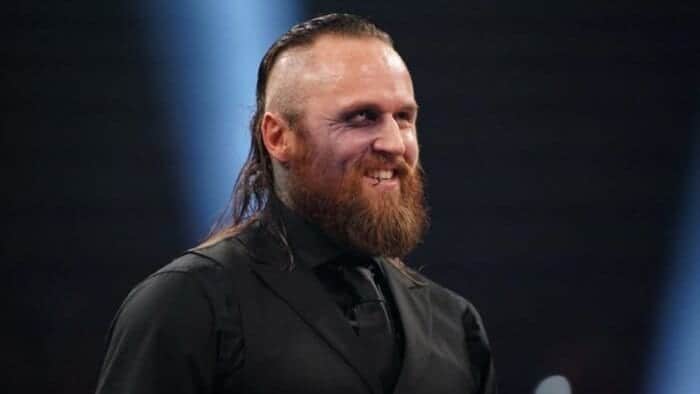
It’s safe to say Malakai Black is a big music fan, with more eclectic taste that one might realise. Here though, he talks us through some of his defining festival, and live music experiences: “Iron Maiden at Sonisphere, Exodus at Download, Terror at Download, Jedi Mind Tricks at Melkweg in Amsterdam and Cradle of Filth at Download, I wanna say. Then, Slayer the last show they did in the UK, I wanna say Sonisphere! Those are the first few that pop into my head.”
Malakai is also a huge fan of the older rendition of Ghost, who are seemingly taking over the alternative music world right now: “They had the mystique of when Tobias [Forge] wasn’t known. I like the idea of the magician staying the magician, y’know? The early days of GHOST, I really liked. I find them very interesting and intriguing.”
Black finds a number of other bands to be fascinating from a visual standpoint too, he says: “Watain, obviously. Erik Danielsson is a big inspiration for me – he blurs the lines of being brilliant and insane quite well. I mean that in the best of ways. Cradle of Filth for all the obvious reasons. Behemoth as well. A lot of these bands have this huge stage presence and they do something different that has layers of authenticity. They understand who they are very well. I always try to mimic that because that’s the thing that grabbed me. Even if you look at Iron Maiden, their stage presence and what they did with Eddie on stage, it wasn’t just a show,” he says. “You would see these theatrical elements.”
In terms of artists that help to motivate Malakai towards his goals inside and outside of wrestling, he says that Cruel Hand is absolutely one of those bands: “They get me into that fight mode, Terror does that too. Taking a page from of my tag team partner, Brody – God’s Hate does the same to me; if that doesn’t you ready for war, I don’t know what will. If you’re struggling to go somewhere, go to the bathroom and plug that in.”
Black talks about his friend Dallas Green from Alexisonfire (and City And Colour) and how much that music pushes him for different reasons: “We talk about his music a lot, and a lot of is about dying, and it’s funny how I relate to that. As grim as it sounds, I am really interested in that. His music makes me think, and it’s more than just an emotional passage it allows me to like, hyperfocus on one thing, or broaden my horizon to a multitude of things.”
Malakai also discusses Amenra in this context and explains how important that band is to the House of Black’s presentation: “Their whole album is an experience – it is art in the highest form. More recently too, Absent In Body. When the House of Black comes out, we use Absent In Body. When I personally come out as a singles competitor, you will hear Amenra. We wanted to have this blend of music that does that [makes the hairs on the back of his neck stand up] for me. Collectively, Absent In Body does that for us.”
Other examples of uplifting bangers for Malakai include Carpenter Brut: “I love it. It triggers this whole list of musical buttons in me. It’s uplifting, it’s inspiring and it’s bringing out violence in me. It’s bringing out violent creativity in me. It allows me to relax and have fun at the same time.”
Malakai continues discussing his favourite festival experiences in some more detail, and remembers when he did Sonisphere festival [not to be confused with Soundsphere, but yes, we get it – ed], with Progress: “I don’t get to go to a lot of festivals just because my schedule just barely allows for it. A big chunk of my festival experience comes through wrestling. So, I get there the night before, and everyone is always telling me about the festival terrain, and I came in with these loafer shoes that were super cheap. By the end of my 20 minute walk, they were destroyed! I had no more shoes! I had to dig them out of the earth, dry them off and go in my tent, and let everything dry.”
Black laughs as he talks about being in tents with Progress: “With WWE, it was a little different, we did have a bed and a hotel. “With Progress, it was hectic! I had no shoes, and Body Count were playing. I decided to go and watch Body Count!! After that I never made the mistake again to not have wellies [wellington boots] on me!”
It’s not all about heavy metal for Malakai though: “My wife [WWE’s Zelina Vega] has very different music taste to me, but because of her, it goes both ways – she used to think she knew what rock was until she met me! She was like, ‘Oh, this is not System Of A Down or Disturbed!’, and I’m like, ‘No, it’s not!’ The same goes for me, my wife will listen to a lot of Nicki Minaj and Megan Thee Stallion, and there’s a lot of music in there that I enjoy.”
Moving on from music to discuss personal definitions of success, Malakai says that in his opinion, defining success by “materialistic things” is “false”, because success is fulfilment of duty: “If you’re sole purpose in life is to create money, then you are going to struggle, because it’s not likely that you will find something that is authentic.” It’s easier to become famous and successful than it has ever been according to the wrestler, who doesn’t consider himself to be any kind of celebrity: “I consider myself to be someone who has a platform because of what I’ve done, but I am very aware that one day, all of this will go away, and I think having a sober mind to what it is that you’re trying to do helps.”
Malakai has payed off his house, and helped put both of his parents into retirement, and can support them financially, and that is success to him, personally: “I think you should always shoot for the highest of what you can do. But if you consider success to be the next Roman Reigns, that’s a very high bar! I’m not saying you shouldn’t set that bar, but you have to be realistic. A guy like Roman is an anomaly,” he says. “There’s one Hulk Hogan, one Undertaker and they translated professional wrestling in a way that they connect to an audience worldwide, but that’s extremely difficult.”
When talking about the creative process for his now successful clothing line, Blxckmass, the Dutchman says that some of that comes from his passion for the occult, and different religions: “I find the human mind, and what it conveys to be fascinating. A lot of it drives into the occult. It’s a strange thing for the human mind to present these things and write these things down. So, a lot of it comes from reading too. Sometimes, I’ll read a book and three years down the line, I’m like, ‘that’d make a great shirt’!” It’s more of an organic thing, and that’s the same as my wrestling for the most part, I will sketch outlines, and as we are going, we are painting the picture. You cannot say that is going to go exactly this way. That only happens in very, very few occasions, like my debut in AEW – that was ‘this is how this needs to happen, and it did’, but then we’re gonna go sketch, we’re gonna draw, lines. Where can we attach more lines, and where can we sketch ahead. What is the head gonna look like, here comes an arm…”
Malakai goes on to chat about the development of the House of Black concept, and how creative its members (and Tony Khan) are: “I have a good group of people around me as well. Guys like Buddy [Matthews] and Brody [King]. They have good vision too. They amplify things that I think, and help me to think about moving on. It’s no longer one guy with a brush, it’s two dudes with a brush and then obviously Tony holds one too. It’s like, how do we paint this picture so that we can all use the same colours, and still paint a different picture that displays the same [vision] to an audience, you know? That doesn’t ever go smooth, but it should not, because if it were easy everyone could do it.”
“I have that same cooperative relationship that I had with Hunter now with Tony. For me and Tony, we have to find the ground, on which we think is going to be best for the audience, but I think we’ve done a really good job so far, but it’s a learning curve for everyone. This is Tony’s first ever go at a wrestling company, and look what he has done. That’s a testament to how committed he is, and he loves what he does. It’s the same with me. We share a big vision together.”
On his attitude to storytelling as an art form, and how he has taken elements of his WWE/NXT run into AEW (his blackened eye, for example), which is something very different in today’s landscape of professional wrestling, Malakai seems proud: “I approach it like a good movie that has sequels, or a comic book that has different story elements, continuation is what draws people in. A good movie is one that will stand the test of time, and it will come down to the details of what we tell. [Paul] Heyman used to tell me this all the time, ‘you think too much outside of the box, and people aren’t ready for it’. I think now, people are slowly but surely coming around to what I’m tying to do, and have a real sense of intrigue with it. If I look our TV numbers and merchandise numbers, we are doing well,” he says. “I have this vision, and I have to convey that to the man in charge, and he doesn’t always agree, so we have to find a level where we can agree on, and that sometimes causes me to sacrifice part of my vision, but it also causes him to sacrifice part of his vision, but he has always done right by me, and found ways to work with me. I’m not always the easiest person to deal with when it comes to that.”
Malakai reflects very positively on the creative freedom he has in AEW overall: “It’s going from feeling like I was never in control, from coming out of NXT where I was almost completely in control, because Hunter [HHH] was really someone who worked with me, and would just say, ‘this is the story that we have mapped out, how do you see it happening?’, and we would work together to going to the main roster, where there’s a lot of people with their hands in the pot, trying to stir the best dishes, and trying to cook the best meals, but there is one main cook that has a vision, and it’s difficult to remove him from his vision, it’s not for me to say whether it was bad or good, but it was something that I couldn’t really work with.”
Black continues on to discuss the relationship he has now with Tony Khan: “I have that same cooperative relationship that I had with Hunter now with Tony. For me and Tony, we have to find the ground, on which we think is going to be best for the audience, but I think we’ve done a really good job so far, but it’s a learning curve for everyone. This is Tony’s first ever go at a wrestling company, and look what he has done. That’s a testament to how committed he is, and he loves what he does. It’s the same with me. We share a big vision together. I’m very thankful to Tony for giving me this platform and allowing me to have guys like Brody and buddy at my side.”
In terms of his message for UK fans, and supporters of The House, Malakai concludes: “Whether it takes us three years, or thirty years, eventually we will get what we are owed which is hopefully the AEW Trios Titles, the AEW Tag Titles, the most prestigious title in the world, which is the AEW World Title, being around either my waist Brody’s waist or Buddy’s waist. We can’t accomplish that mission without you.”
Words and interview: Dom Smith
Listen to, and watch the full chat here, where Malakai talks about his creative process as a wrestler, the “atmosphere” of his entrance, some fan questions and favourite pop songs!

